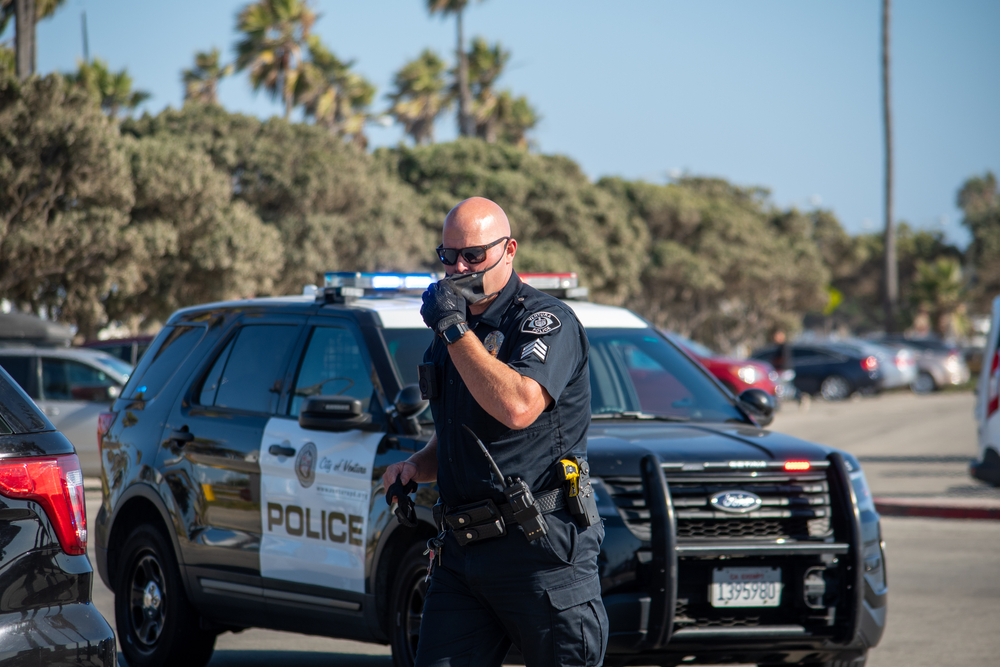
Police Tape 101: Everything You Need to Know
Police tape, commonly known as crime scene tape, is an important tool used by law enforcement to secure…

When it comes to law enforcement, there are a lot of different titles and positions. And this article will dwelve about if there is a difference between a police officer and a sheriff deputy.
Two of the most common are police officers and sheriff’s deputies. But what’s the difference between these two positions? In general, police officers’ responsibility is to enforce the law within their jurisdiction, while sheriff deputies are responsible for enforcing the law in rural areas. But there are a few other key differences between these two positions. In this article, we’ll explore the differences between police officers and sheriff deputies and, the significant key differences between them.
A Sheriff is an elected official who oversees the operation of a county government. They are often elected to a four-year term. They have many responsibilities, including enforcing laws and keeping the peace, overseeing elections and property records, keeping the court system running smoothly, and maintaining public safety. They wear a badge with a star on it and carry a gun, and sometimes other weapons. A sheriff’s main duty is to ensure that all laws are followed, but they also have many other duties.
Sheriff’s deputies are peace officers who are employed by a county sheriff. They are responsible for enforcing all state and local laws in the county’s unincorporated areas and maintaining roads and other infrastructure, including firefighting and emergency medical services. In addition, they carry out many basic law enforcement duties, such as responding to calls for service, conducting investigations, issuing citations, and making arrests.

Like all peace officers, sheriff’s deputies have the Power to use reasonable force when necessary to protect themselves and others. Some deputies may be armed with firearms, while others do not. Deputies may also make traffic stops on their initiative. In addition, deputies may perform non-law enforcement duties such as crowd control, delivering mail, and even serving as court bailiffs. They can also be called to assist during natural disasters or other emergencies.
A police officer is a member of the law enforcement community who typically works in a city and whose primary duty is to do patrols inside that community. A police officer’s duties include upholding and enforcing the law, assisting with investigations, testifying against criminals, and maybe offering assistance in the event of a traffic accident. To dissuade criminal activity and apprehend those responsible, police officers might work as patrol officers tasked with keeping watch over a certain section of town. Unlike the sheriff, appointed or selected by senior leaders, police officers must apply for jobs with local departments.

Numerous similarities and differences exist between a police officer and a sheriff’s deputy. Here are a few of the most significant distinctions between a police officer and a sheriff’s deputy:
The jurisdiction, or the region over which an officer may lawfully act, is the main distinction between a police officer and a sheriff’s deputy. Normally, a police officer’s authority is limited to the area inside the municipal limits where they work. An officer’s authority can extend beyond the city limits, covering certain roadways and even parts of their county. However, the authority of a deputy sheriff often extends over the whole of a county, which may be comprised of several comparatively smaller cities and towns. While these experts are useful to local law enforcement agencies, they often don’t go outside their own state to do their job.
The responsibilities of a police officer and a sheriff’s deputy are quite similar, with a few notable exceptions:
Police officers and sheriff deputies patrol their communities to dissuade criminal activity and keep tabs on the safety of its residents. However, deputies are more common than police officers on highways and county roads.
Read more: Types of Police Patrols
Highway and county road patrol is normally handled by sheriff deputies, while highway patrol is handled by police officers inside city boundaries.
Law enforcement officers and deputies work together but don’t cross over into one other’s territories. It is common practice for law enforcement agencies to work together on investigating and resolving high-profile crimes.
While both police and sheriff’s deputies are responsible for conducting investigations into criminal activity, the degree to which each is involved depends on the specifics of the incident at hand and the jurisdiction in which it occurred. Even if a robbery may have occurred inside the officer’s municipal limits, he or she may hand over the investigation to homicide investigators if a homicide was also committed at the location.
The yearly salary of sheriff deputies and police officers is another significant distinction between the two occupations. The average wage for a police officer in the United States is $55,000 annually, while a sheriff’s deputy can expect to make roughly $50,000. Both professions have the potential for a higher income, albeit this will depend on factors such as the officer’s education level and the jurisdiction they serve.
| Police Department/Sheriff’s Office | Average Yearly Salary |
| Los Angeles Police Department | $84,915 |
| Los Angeles County Sheriff’s Department | $94,863 |
| Albuquerque Police Department | $53,436 |
| Bernalillo County Sheriff’s Department (Albuquerque) | $67,000 |
| Jacksonville Police Department | $53,482 |
| Jacksonville Sheriff’s Office | $46,856 |
| Chicago Police Department | $71,255 |
| Cook County Sheriff’s Office | $57,832 |
The circumstances in which sheriff’s deputies and police officers serve are similar. The duties of sheriff’s deputies and police officers include shifts both on the street and in offices. However, police officers are often only allowed to operate inside the confines of a certain city. As a result of metropolitan grid layouts, architecture, and high traffic, urban landscapes may be challenging to police. Rural locations, where sheriff’s deputies are more common, come with their own set of difficulties, such as larger expanses to patrol.
Typically, sheriffs have statewide authority. Sheriffs are higher in status than police officers since they are the top law enforcement personnel in a county. Compared to the sheriff, who has jurisdiction over a whole county, a police officer is relatively powerless.
Everything depends on the location of the local sheriff’s office or police department. Although sheriffs may earn a larger yearly pay than police officers in certain areas, this is not the case everywhere. In general, police officers have higher yearly pay than sheriffs.
Both sheriffs and police are essential government employees for every nation. On the other hand, sheriffs have more status than regular police officers. While a sheriff is in charge of an entire county, a police officer often only has jurisdiction over a certain section of a city or town within a county or state.
In conclusion, a police officer is a professional with a law enforcement background who performs administrative duties and enforces laws. A sheriff’s deputy is a peace officer with authority to enforce state or local laws in addition to federal laws.

Police tape, commonly known as crime scene tape, is an important tool used by law enforcement to secure…

The police are called daily regarding various incidents of public interest. It is our responsibility to provide the…

Many police officers experience terrible, traumatic events in the line of duty. A significant number of police officers…